Advertising can be a challenging task, especially when doing it online. Millions of other businesses are advertising their products online, hoping to get a few clicks and sales. Since there are so many products and services online, consumers can get caught up in searching for what they need.
For example, suppose a consumer is searching for food-related products. That consumer may spend hours on search engines like Google scrolling through various results, clicking on those that pop out to them the most. What are those businesses doing to earn that consumer’s clicks and money?
Keywords are vital for making a product or service stand out from others. An affiliate marketer only needs a few keywords, and they’ll get the clicks and sales they need, right?
While keywords are crucial for selling a product or service, the wrong keywords can set the affiliate marketer back. That’s why the marketer must spend time researching the right keywords to sell their product or service.
To get the most profits and clicks, here’s how to choose the best keywords for Google Ads and why they’re so important.
How Can Google Ads Help You Generate Leads? Why Does It Matter?
Most search engines have their own ads to generate leads, but no search engine is more famous than Google. Since Google is the most well-known search engine out there, it makes sense that many businesses and affiliate marketers use Google Ads to help generate their leads. So, how can Google Ads help generate leads, and why does it matter?
Google lead form ads drive more leads by reducing friction, but some claim it drives off some quality while doing that. However, the search engine does have extensions that partially solve this issue. YouTube, which Google owns, also has YouTube for Action Form Ads to solve this issue.
Consumers usually search for a specific company or product related to an affiliate marketer’s offer when searching for something. Google and YouTube recognize this as a synonym for quality. So, the affiliate marketer can drive leads without giving up any quality.
How do these extensions work? Google uses a simple call to action to attract new consumers. These calls to action are attached to a responsive form under an ad. When consumers click that ad, Google shows them a form automatically pre-populated with their Google account data.
Google also has Premier Partners that have a direct line to the company. Google certifies all of a company's integrations when it's a Premier Partner. That means these companies offer:
- Advanced Google product training
- Customer Match
- Direct Google support
- Offline conversion tracking
Being a Premier Partner also lets companies create their Google forms directly in an app because the companies empower every integration with Google Ads lead form extensions.
However, this can be expensive. Google Ads offers companies a $500 advertising credit, but they must spend at least that much on advertising within the first 60 days. Once the companies spend that $500, they receive that credit for spending on their campaigns.
So, why does this matter? When using Google Ads lead forms, the affiliate marketer can experience these benefits:
- Pre-filled forms that are easy and quick for consumers to submit their contact information
- High performance
- Optimized for mobile navigation with no need for extra technical intervention
- Easy to customize forms for an affiliate marketer’s marketing goals
- Forms that can integrate with other marketing tools for contacting new leads after signing up
- Relevancy based on a consumer’s search patterns on Google
Keyword Matching Options
After learning about Google Ads generating leads and why that matters, it’s time for the affiliate marketer to understand keyword-matching options.
As stated before, keywords make a product or service stand out and are vital. However, the affiliate marketer can’t just come up with random keywords and call it a day. Instead, they must learn about the different keyword-matching options and how to use them well.
There are three keyword-matching options when advertising on Google Ads:
- Broad match
- Phrase match
- Exact match
Each of these matches has its advantages and disadvantages, so let’s discuss them to see which one will fit your needs best.
Broad Match
A broad match is the default and most-used type. Many people use this match type because it reaches the widest audience.
When a consumer uses a broad match, the affiliate marketer’s ad can appear whenever said consumer’s search query includes any word in the marketer’s key phrase. The terms can be in any order, and any expression relating to a keyword can also appear.
For example, suppose someone is searching for a particular cooking product. The consumer wants to look for air fryers, so they type the phrase into Google. Then, they either hit the enter key on their keyboard or tap the search button on Google.
Results for various air fryers immediately bombard the consumer, which is what they wanted to search for. However, they can also come across air fryer recipes, which they weren’t looking for.
Since the broad match is the default and most-used type, there’s also more competition among businesses and other affiliate marketers for ad space. The broad match can generate lots of clicks, but it can also generate irrelevant traffic that doesn’t convert.
The affiliate marketer can set up negative keywords so their ad won't appear in irrelevant searches. Negative keywords are closely related phrases that aren’t relevant to an affiliate marketer’s target audience.
For example, suppose a consumer is searching for sharp kitchen knives, and they type “sharp knives” without quotation marks. That consumer may encounter a link showing sharp knives for survival purposes instead of cooking. That would be a wasted click for whoever’s advertising sharp knives for survival.
Negative keywords ensure consumers and affiliate marketers that irrelevant ads won’t appear in a search query.
Phrase Match
The phrase match type offers versatility like the broad match type but has a higher level of control. That means the affiliate marketer’s ad will only appear when a consumer queries key phrases in an exact order.
However, some words can still be either before or after the exact phrase. For example, Google expanded phrase matches to include synonyms, plurals, or close variants of keywords in 2019.
So, suppose a consumer is searching for air fryer recipes. They type the phrase in quotation marks and get air fryer recipes. However, other variants of “air fryer recipes” appeared in the search, too, like “best air fryer recipes” and “air fryer recipes for beginners."
The phrase match type may offer versatility like the broad match type, but its higher level of control softens some of the competition the affiliate marketer’s campaign might face.
Exact Match
The exact match type is exactly what it sounds like. It’s both the most specific type and the most restrictive. Before, consumers would only see an ad after typing in the ad’s exact keyword phrase by itself.
For example, suppose someone was searching for the cheapest air fryers. When typing “cheapest air fryers” in brackets, they would only get results for the cheapest air fryers. Simple enough, right?
However, Google has recently made changes, so even if the consumer uses an exact keyword match, the affiliate marketer’s ad can still match to search containing synonyms, plurals, or other keyword variations.
Let’s go back to that “cheapest air fryers” example. When searching for that exact phrase in brackets, the consumer will still mostly get results for the cheapest air fryers. However, they will also get results for “best air fryer deals” or “best air fryers at Walmart."
There is a positive spin to this. When searching for an exact keyword phrase, consumers will more likely be interested in what the affiliate marketer is selling. That reduces unwanted costs and wasted time, and it results in higher conversion rates.
Unfortunately, the affiliate marketer won't get as much traffic due to the exact match type's restrictions. That’s because it’s the least-used match type. Most people aren’t very particular in their searches.
Thankfully, Google updated the exact match types like phrase match types, so including synonyms, plurals, and keyword variations will give the affiliate marketer more flexibility.
What Makes a Good Google Ads Keyword?
After learning about the different types of keyword matches and how they work, it’s time for the affiliate marketer to understand what makes a good Google Ads keyword. How does it work?
As stated before, the marketer can’t just come up with random keywords and call it a day. Choosing the right keywords takes time and effort. The marketer’s ad will appear in an appropriate and relevant search when they use the right keywords.
So, here are the things that make a good Google Ads keyword.
High search volume
Every affiliate marketer wants as many clicks and conversions as possible. That’s why choosing a keyword with a high search volume is crucial.
Like SEO (search engine optimization), picking a keyword with a high search volume will improve the quality and quantity of an affiliate marketer’s website traffic. That way, the marketer will have a better chance of reaching more consumers.
Believe it or not, Google Ads will flag keywords added to the affiliate marketer’s account with a “low search volume” notice. That notice means the keywords may be allowed, but they’re unlikely to serve the marketer’s ad if nobody’s searching for them.
Topic Specificity
When advertising, it’s best for the affiliate marketer to know their target audience. That’s why breaking down ad campaigns into as many logical groups as possible is great for choosing the right keywords.
When the affiliate marketer adds specific, long-tailed keywords, they have a better chance of reaching their target audience at a search intent’s level. They can even face less competition!
Appearance in an Ad’s Landing Page
In an ideal world, many Google Ads keywords the affiliate marketer may associate with a particular ad will appear on a landing page that links to their ad. Of course, this isn’t an ideal world, so that’s not always possible.
The affiliate marketer should create a comprehensive user journey from a search term to a landing page. That way, consumers won’t feel like they’ve been taken in by an ad.
Policy Compliance
Google updated its Ad Grant policy in 2018. That means the affiliate marketer should not use keywords that are:
- One word
- Branded by other companies
- Generic
Where can the affiliate marketer find keywords? There are many places, but the most popular methods of finding the right keywords are:
- Google Trends
- Existing queries
- The affiliate marketer’s website
- The competition’s keywords
- Pop culture and current events
Most Important Rules Regarding Using Keywords in Google Ads
Now that the affiliate marketer has learned what makes a good Google Ads keyword, it’s time to learn the rules of using keywords in Google Ads. There are many rules regarding keywords in Google Ads, so here are the most crucial ones.
For starters, the affiliate marketer should learn how their ads get shown. Many factors determine how an ad appears, like:
- The affiliate marketer’s budget
- The maximum cost per click (CPC) per keyword
- The competitor’s maximum CPC on said keyword
- The search phrase’s popularity
- Google’s Quality Score
The affiliate marketer also shouldn’t send every consumer to their home page. There’s no place like home, but it’s not right to dump consumers there after they click on an ad without telling them where to go next.
Instead, the affiliate marketer should steer their consumers to the response they want by making a unique landing page. Creating an original landing page is part of Google’s Quality Score rating.
Another thing the affiliate marketer must do is separate their campaigns. Google’s default settings have Search and Display at the campaign level without separating mobile. That’s why the affiliate marketer should manually opt their keywords out on the Display Network.
If the affiliate marketer is concerned about costs, they should take advantage of free conversion tracking. Running a campaign without conversion tracking is like running while blindfolded. Google has a free conversion tracking code for more insight and to help the affiliate marketer prune and optimize their campaigns.
Speaking of ads, always run different versions of ads to see which one works best. The affiliate marketer should run at least three tests for each ad group for about a week to determine which version is the best and to tweak the versions that didn’t work out.
It’s also crucial for the affiliate marketer to take advantage of ad extensions. Google has an ad extension option that shows the marketer products, gives locations and phone numbers, and lists additional links. All these actions are associated with a single ad.
Conclusion
Advertising online can be challenging, especially regarding keywords on Google Ads. That’s why the affiliate marketer must use Google Ads to help generate leads, use keyword matching options, learn what makes a good Google Ads keyword, and learn the rules of using keywords in Google Ads.
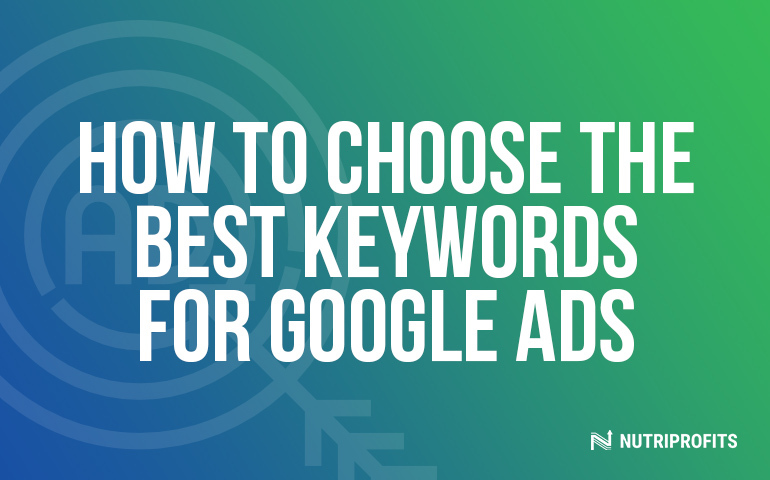
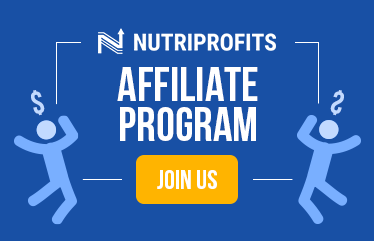
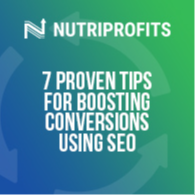
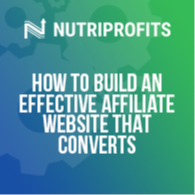

.jpg)
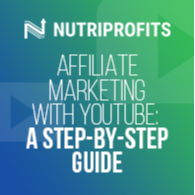
-1-1.jpg)